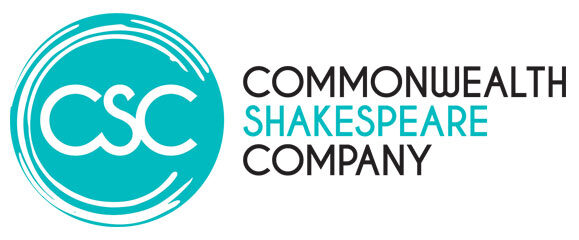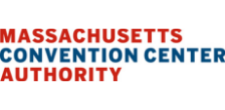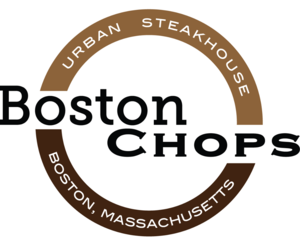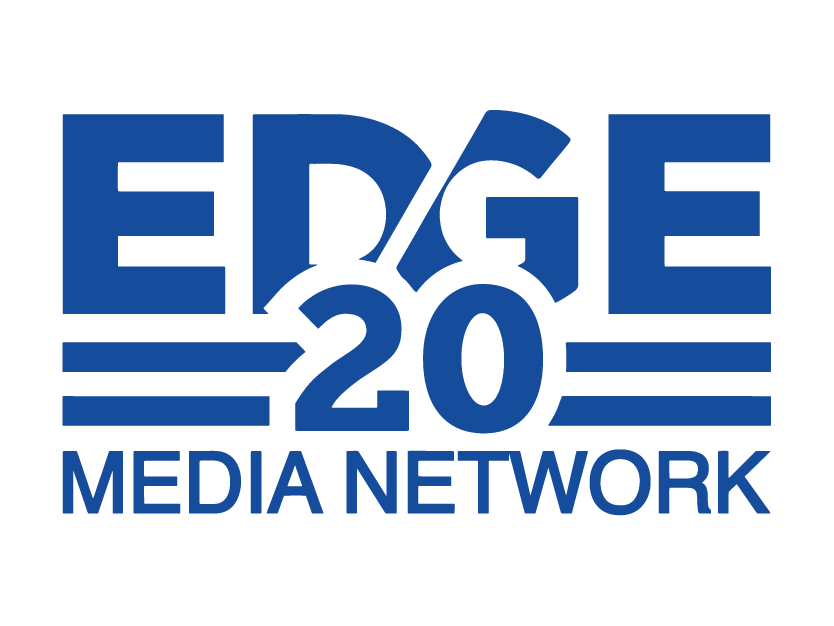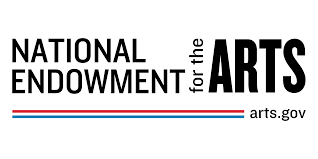This page serves as an archive of resources compiled by StageSource before the closing, as of March 31, 2023.
Anti Racism Resources
Part of StageSource’s mission is to empower our community to realize its greatest artistic potential. This is not possible without a foundation of inclusion and equity in our sector and culture-at-large. The following is a compilation of resources to combat racism in theatre, your community, and the societal structures at large. This is a living document, and resources will be added as they come in.
A NOTE ON THE STRUCTURE OF THIS PAGE: Except for lists of organizations, the resources in each section will be ordered in terms of experience and information level. Starting with quick introductions and moving incrementally towards more in-depth resources. If you are new to a topic, check out the first resources listed, if you have more experience and working knowledge of a topic, the later ones might be more your speed.
If you have any resources you think would be helpful for this list, please send them to ops@stagesource.org
View a compilation of anti-racism policies and statements from theatres across New England at the bottom of this page.
LOOKING TO IMPROVE YOUR ANTI-RACISM INITIATIVES?
To be truly anti-racist, we must develop and implement plans that actively create systems that are inclusive and safe for BIPOC. This guide is for anyone looking to move beyond words into impactful anti-racist action within an organization. CLICK HERE for the full guide.
ORGS TO SUPPORT
If you have the time & skills, there are plenty of organizations in your community doing the work to tackle racist systems and uplift communities of color.
If you have the financial stability to do so, donating is a key way to take direct action to put your money where your mouth is—to support Black-led organizations and those doing important anti-racism work.
Primary Black Owned Businesses Boston
A fairly comprehensive list of Black-owned restaurants and businesses across the Greater Boston Area, a way to support local businesses and your local Black community
Homeless Black Trans Women Fund
This fund was started for a small community of Black Trans women living on the streets of Atlanta, many of whom are also sex workers. We now are not only able to help this community, but this project has grown into a unique opportunity to alleviate the chronic homelessness that exists among Trans people in Atlanta, especially among Black & brown Trans people.
Black Trans Protestors Emergency Fund
In partnership with the Black Trans Travel Fund, For the Gworls, and The Okra Project. Funds raised will be used to support Black trans protestors with resources, medical care, and bail. Any extra funds will be redistributed to Black trans-led organizations doing the work to minimize violence against Black trans folks.
RACIAL JUSTICE
Black Lives Matter Boston
BLM Boston’s mission is to organize and build Black power in Boston and across the country. BLM Boston centers work against racist policing and police violence, abolishing mass incarceration, economic disparities, and factors that allow the school to prison pipeline to exist.
Showing Up For Racial Justice Boston
SURJ is a national network of groups and individuals organizing white people for racial justice with passion and accountability. They support and collaborate with local and national racial justice organizing efforts. SURJ provides a space to build relationships, skills, and political analysis to act for change.
NAACP Boston
The National Association for the Advancement of Colored People fights to ensure the political, educational, social, and economic equality and rights of all persons and to eliminate racial hatred and racial discrimination.
Boston Grassroots Racial Justice Organizations
This list was initially developed in the wake of the 2016 election, when many liberal and progressive people were rushing to support larger, high-profile national progressive organizations. While this is valuable in some ways, small grassroots groups, particularly those led by Black and Indigenous people and people of color have tenaciously been anchoring racial justice work in Boston for decades, and will continue to do so.
BAIL & FIGHTING INCARCERATION
Being held during the pretrial can be devastating on a person’s family, community, housing, employment, education, and health. Investing in a Bail Fund ensures that your freedom from trial doesn’t depend on the contents of your bank account. Fighting to end incarceration heals families and rebuilds communities.
Massachusetts Bail Fund
The Massachusetts Bail Fund pays up to $2000 bail so that low-income people can stay free while they work towards resolving their case.
Families for Justice as Healing
Families for Justice as Healing is a small grassroots organization working to end the incarceration of women and girls. Their membership advocates for community wellness, public health alternatives to the current U.S. drug policies and legislation that focus on criminalization, the war on drugs, and mass incarceration. For more information, visit their Facebook page.
RACISM, PRIVILiGE & WHITE SUPREMACY
Many are taught that it is discrete acts of violence committed by individual people and a conscious dislike of a person because of their race. In terms of racial justice, however, racism is a profoundly complex social dynamic and set of interconnected systems.
White Privilege: Unpacking the Invisible Knapsack (PDF – 15 min)
This resource, created by Peggy McIntosh, unpacks a list of 50 day-to-day examples of white privilege the average white person may not even notice are affecting them.
We See You, White American Theater (Letter – 5 min)
A letter written and signed by hundreds of Black, Indigenous, and People of Color (BIPOC) theatre-makers, for white theatre-makers to acknowledge and challenge their complicity in white fragility and supremacy.
13th (Film)
A critically acclaimed documentary by Ava DuVernay where scholars, activists, and politicians analyze the intersection of race, justice, and mass incarceration in the United States.
White Fragility: Why It’s So Hard For White People To Talk About Racism (Book)
This book, by Robin DiAngelo, defines and explores White Fragility—a state of anger, fear, anger, defensiveness, argumentation, and silence when confronted with racial discussions. Written specifically for a white audience DiAngelo tackles definitions of racism, why white people react in specific ways during conversations on race, and how to do the ongoing work towards racial justice.
The Characteristics of White Supremacy Culture (Article – 10 min)
From Dismantling Racism: A Workbook for Social Change Groups, by Kenneth Jones and Tema Okun, and ChangeWork, this article includes a list of characteristics of white supremacy culture which show up in our organizations that may be harmful but difficult to identify.
The New Jim Crow: Mass Incarceration in the Age of Colorblindness (Book)
Michelle Alexander tirelessly researches both the legal history of America’s Jim Crow past and the current legal policies that contribute to the mass incarceration of black people. The text adds significantly to scholarship that contextualizes rates of incarceration among blacks and critiques of social and economic inequality.
How to be Antiracist (Book)
Ibram X Kendi takes readers through a widening circle of antiracist ideas—from the most basic concepts to visionary possibilities—that will help readers see all forms of racism clearly, understand their poisonous consequences, and work to oppose them in our systems and in ourselves.
How We Fight White Supremacy: A Field Guide to Black Resistance (Book)
As Colorlines editors Akiba Solomon and Kenrya Rankin show, Black Americans subvert and resist life-threatening forces as a matter of course. In these pages, leading organizers, artists, journalists, comedians, and filmmakers offer wisdom on how they fight White supremacy. It’s a must-read for anyone new to resistance work, and for the next generation of leaders building a better future.
ADDITIONAL READING LISTS
An Antiracist Reading List by Ibram X. Kendi (30 Books)
How to Be an Antiracist and other Essential Titles by Trident Booksellers (30 Books)
ALLIES & ACCOMPLICES
The phrase “ally” is thrown around a lot in regards to social movements to describe those who support it. But what exactly is an ally? What does it take to be an ally? And what divides an ally, from a true accomplice?
ALLIES engage in activism by standing with an individual or group in a marginalized community. Allyship is an ongoing, arduous, and active process of learning, re-learning, reflecting, and advancing a culture of inclusion.
ACCOMPLICES focus more on dismantling the structures that oppress that individual or group. Being an accomplice means going against unfair systems, and facing the repercussions of opposing laws and institutions, in order to achieve equality.
Allyship & Accomplice: The What, Why, and How (Article – 5 min)
An exploration of allyship, what it means, common misconceptions, dos and don’ts, and a quick look into being an accomplice.
Accomplices Not Allies: Abolishing the Ally Industrial Complex (Article – 10 min)
An in-depth look from Indigenous Action on the limitations and dangers of modern allyship, and recommendations to move forward as an accomplice.
ACTION STEPS
What can you do to take anti-racist action in your life? Below are some tips and steps you can start tackling today. The information below was collected and compiled from the resources listed below, please support them and use them to dive deeper!
- EDUCATE YOURSELF — Read the work of black scholars on history, white supremacy, the justice system, police violence, and prison abolition. Read resources and guides from organizers doing anti-racism work. Watch documentaries on America’s history with racism. Decolonize your knowledge of national and global history. Follow Black-led publications and news sources. The resources on this page are a great place to start. Continue educating and reflecting, this is a lifelong journey.
- Join local “white spaces” (places like SURJ) to learn more about and talk about biases without unloading upon the people of color in your life.
- Attend or host trainings on bias, bystander intervention, and knowing your rights when interacting with the police.
- LOOK AT YOUR SOCIAL CIRCLES — Be aware and honest about the diversity of your friend group, and your children’s friend group. Seek out diversity in those you interact with, but focus on honesty and openness, and avoid tokenization.
- UPLIFT MARGINALIZED VOICES — Center and make room for the voices of those affected by the issues you are discussing. Listen to and share their stories and their experiences. When friends share their stories or post articles by people of color, don’t just scroll past, actually read them.
- CALL IN YOUR COMMUNITY — Call out racism, misogyny, transphobia, homophobia, fatphobia, white supremacy, and bigotry in all its forms in your daily life. This means speaking up to your family, coworkers, boss, and friends. Educating those you are closest to is often difficult and uncomfortable, but it is critical for dismantling oppressive systems. You’re the best resource for getting them involved in this work too.
- INVEST — If you have the means, donate time and resources in support Black Lives Matter chapters, anti-racist organizations, Black-owned businesses, direct support through platforms like GoFundMe, and mutual aid networks. Share these organizations and help them raise funds. If you cannot offer monetary investments, share your skills, whatever they may be.
- DIVEST — Divest your investments and prison centers. Be aware of where your funds go and what those organizations support. Bank Black.
- GET INVOLVED LOCALLY — Get on local listservs, attend meetings and rallies. You can look for local gatherings and find out who is organizing them to support local organizers.
- Get to know your local policies on police body-worn cameras, de-escalation training, and use of force.
- Know what indigenous land you’re living on, and support their activism efforts
- CONTACT YOUR LEGISLATORS & REPRESENTATIVES — Stay involved in the policies being passed that affect your community. Contact them regarding your stance on issues like criminal justice reform, decriminalization, police brutality, voting reform, and racial impact statements.
- DECOLONIZE YOUR MEDIA — Read books, watch plays and movies, study resources that include people of color in the forefront and center their stories. Plan them into your seasons, add them to your syllabus—not just in February. Tell their stories in all genres, not just one’s that profit on Black pain. Purge books that forward racist ideologies or by racist authors.
- WORK WITH PEOPLE OF COLOR — Ensure your hiring department is actively and effectively recruiting people of color. Ensure your organization has diversity strategies so that your colleagues have a safe place to work once they’re hired.
- GET ON YOUR FEET — Work with organizers to canvas about racial justice. Attend protests when invited, and support POC voices without taking over their space.
- SUPPORT PROTESTERS — Offer to be an emergency contact and check in on the safety of those attending rallies. Cook pre- or post-march meals, or pack food for people attending protests. Provide supplies for organizers. Coordinate or provide childcare.
RESOURCES
Beyond the Hashtag: How To Take Anti-Racist Action In Your Life (Article – 5 min)
75 Things White People Can Do for Racial Justice (Article – 15 min)
Self-Care Tips for Black People Who Are Struggling With This Very Painful Week (Article – 5 min)
Being buffeted by images of Black suffering can leave you feeling sad and angry and overwhelmed. Vice offers seven things you can do to get some relief.
Therapy for Black Girls (Resource & Directory) This is an online space dedicated to encouraging the mental wellness of Black women and girls. It offers guides and a directory for Black women to find therapists.“Abolition is emptying cages and shutting down prisons, dismantling the systems that created them, and creating community-based processes for preventing, intervening in, transforming, and repairing after harm” —Tanuja Jagernauth
Building A Police-Free Future: Frequently Asked Questions (Zine – 5 min)
This interview between Lisa Snowden-McCray and abolitionist & restorative practices specialist Bilphena Yahwon is a quick primer to what abolition is, why it’s important, and what it could look like in practice.
Are Prisons Obsolete? (Book)
This book by Angela Davis puts forward the argument for the abolition of prisons. A vital, and thoroughly researched case for prison abolition, grounded in American history and the current racist inequities involved in the prison-industrial complex. Many people’s first instinct is to call the police when they see conflict, or witness something dangerous or threatening. Calling the police, however, often escalates situations, puts people at risk, and leads to violence. Black people in particular are at least three times more likely to be killed by the police. People of color, LGBTQ+ people. sex workers, and people living with disabilities and mental health conditions are in danger when the police are called—even if they are the victim of the crime being reported.It cannot be emphasized enough that a seemingly harmless or helpful call to the police can be a death sentence for many people. Calling the police is not the only option, and you must understand the impact it may have on you or the other person before doing so.How do you keep yourself and others safe, and protect your rights from being violated without police intervention? Below are some alternatives to calling the cops, including specific scenarios and general principals and guidelines. The information below was collected and compiled from the resources listed below, please support them and use them to dive deeper!
GENERAL PRINCIPALS & PREPARATION
- CHECK YOUR IMPULSES — Rewrite your internal scripts about the police and what is considered dangerous.
- Before calling the police on someone you believe looks or is acting “suspicious,” ask yourself if their race, gender, ethnicity, class, or housing situation is influencing your choice.
- If something is happening that upsets you, ask yourself “Is this merely an inconvenience? Can I put up with it and be okay?”
- Do the work to remove the autopilot belief that police do not keep everyone safe and re-define safety as including not only ourselves and our inner circles but also our communities.
- Ask yourself painful but important questions: Are you willing to put yourself at risk socially, psychologically, economically, or physically to stand in solidarity with people of color? Are you acting out of fear of getting close to people who are different from yourself?
- GET TO KNOW YOUR NEIGHBORS — Hold community events, like monthly block parties. Getting to know your community makes it easier and less uncomfortable to directly handle issues that may arise (loud music, smoke, mental health issues) without police intervention. Strong communities make police obsolete.
- Knock on people’s doors or leave a note with your number. Open a conversation, and agree to reach out to each other if you have an issue before calling 911.
- This is particularly important for white people moving into historically Black or Latinx neighborhoods. Honor their history, demonstrate a commitment to learning, and invest in your relationships and your collective safety.
- CREATE A CULTURE OF CARE— Brining police to rallies, demonstrations, classrooms, and protests can lead to escalation and violence. Instead, create networks and systems for care and organization within the community.
- Ask yourself if you or someone in your community could handle this problem. Could you try to talk it out with the people involved? Is there a friend or someone you could call to help you?
- This may be easier where you already have resources to respond (noise complaints or interpersonal conflicts) but it may be a longer and deeper process to respond to things like violence or burglaries.
- KNOW YOUR COMMUNITY RESOURCES — Keep a list of community resources for support. These resources can include mediation, suicide hotlines, mental health services, human trafficking hotlines, assault and rape crisis centers, and severe heat or cold hotlines.
- PEOPLE BEFORE PROPERTY — Before confronting someone or contacting the police, ask yourself if anyone is being hurt or endangered by apparent property theft or damage. If the answer is “no,” then let it be.
- If something of yours is stolen and you need to file a report for insurance or other purposes, consider going to the police station instead of bringing cops directly into your community and inadvertently putting someone in your neighborhood at risk.
- GET TRAINING — Hold and attend de-escalation, conflict resolution, first-aid, volunteer medic, self-defense, and bystander intervention workshops in your neighborhood, school, workplace, or community organization.
SITUATIONAL EXAMPLES
- NOISE COMPLAINTS — Talk to them directly. Do the work in advance to get to know your neighbors to make these direct encounters less uncomfortable.
- PUBLIC URINATION — Just look away. Remember, many homeless people do not have reliable access to bathrooms.
- ERRATIC BEHAVIOR — If someone is exhibiting behavior that seems “odd” to you, don’t assume they are intoxicated. Ask if they are okay, they may have a medical condition or injury and need assistance. People with mental illness are 16 times more likely to be killed by cops than those without.
- CAR TROUBLE — If you see someone with car trouble, ask if they need help or if you can call a tow truck for them. Introducing police into the situation may give unnecessary punitive tickets, target those without papers, or worse.
- VANDALIZATION — Street art is a beautiful form of public art, there’s no need to report it. If you see hate speech, paint over it with your friends.
- DOMESTIC ABUSE — Offer a place to stay, a ride to a safe location, services like watching their children. Utilize community resources like safe houses and hotlines.
